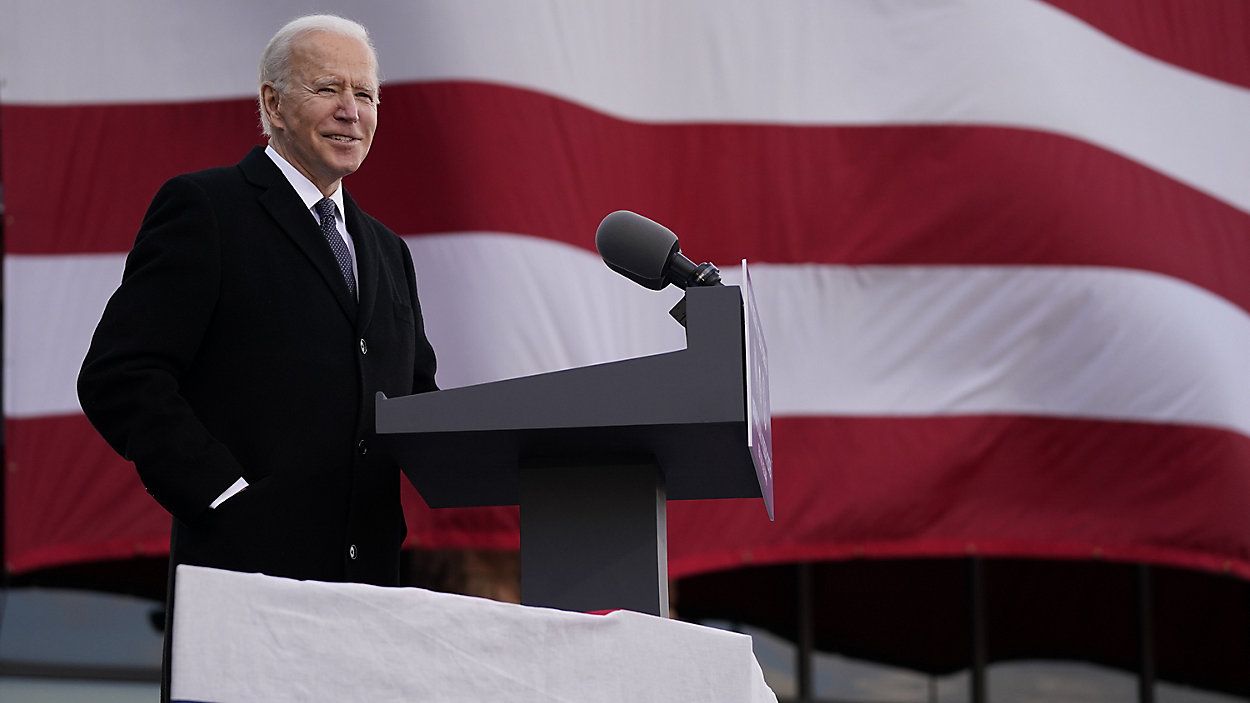Editor's note: Mental Health Musings (MHM) will focus on community resources and stories throughout the duration of the COVID-19 pandemic.
Today celebrated President-elect Joe Biden’s inauguration.
But, the new administration inherited the exasperated mental and behavioral health needs that surged as the year anniversary of the COVID-19 pandemic in America and took the lives of over 400,000 citizens.
“For many months, we have grieved by ourselves,” said Vice President–elect Kamala Harris in remarks on the eve of the inauguration. “Tonight, we grieve — and begin healing — together.”
During an interview with the nonprofit Mental Health For US, Biden laid out his plans for mental and behavioral health care.
The Biden Administration hopes to improve several different facets of mental and behavioral health care including veteran mental health, the opioid epidemic and structural disparities like access to care and insurance parity.
The average number of veteran suicides per day was 17.6 in 2018, according to the 2020 National Veteran Suicide Prevention Annual Report by the U.S. Department of Veterans Affair.
While the telehealth appointments increased by 1,000 percent during the COVID-19 pandemic through the VA’s Video Connect program, the VA’s data did not indicate that COVID-19 pandemic-era caused increases in suicides, attempts or volume of emergency visits.
The Biden Administration said it will publish a comprehensive public health plan to address suicide among veterans during the first 200 days in office, expand capacity at Vet Centers to access readjustment counseling services and improve programs to PTSD treatment.
Last spring, Western New York saw an increase in deaths by opioid overdoses in three counties.
The Affordable Care Act, passed under the Obama Administration when Biden served as vice president, forced insurance companies to cover mental and behavioral health treatments including for substance use. Before the law passed, individual carriers could sell plans that didn’t cover behavioral health care. It also expanded Medicaid, the nation’s largest provider for mental health services.
The Biden Administration says it will hold pharmaceutical companies responsible for their role in the opioid crisis, reform the criminal justice system so drug use alone isn’t reason enough for incarceration and make treatment and recovery services available to all.
Structural disparities in the behavioral health care system date back to the 1960s when the government policy of deinstitutionalization transitioned mental health patients out of state-operated asylums to federally funded community service.
The Community Mental Health Act of 1963 aimed to help interrogate those with mental health needs into community settings, but decades of underfunding those community centers led to an increase in more people forgoing mental health care or being involved with the criminal justice system.
The Biden Administration said it will expand the Certified Community Behavioral Health Clinics Demonstrations program, work with Congress to expand access to long-term services and increase integrations of mental and behavioral health treatments into primary care.
“Mental health is health, period. It should be treated that way by our insurers and our culture,” Biden said during his interview with Mental Health For US.



